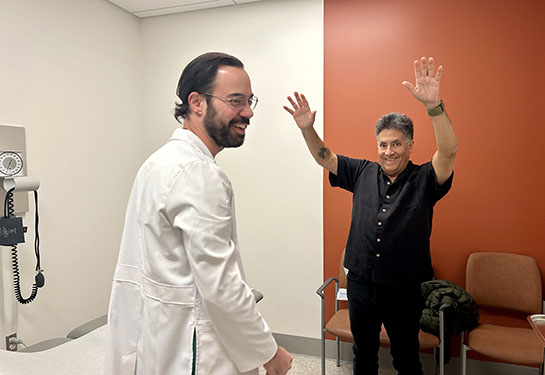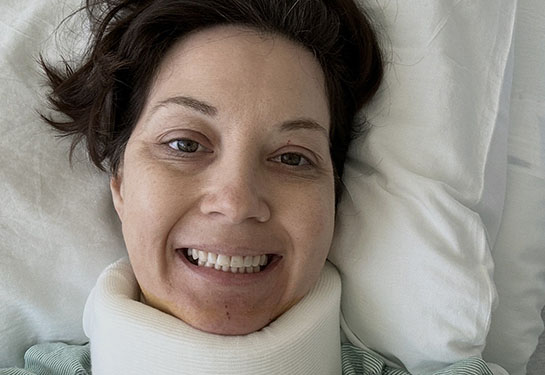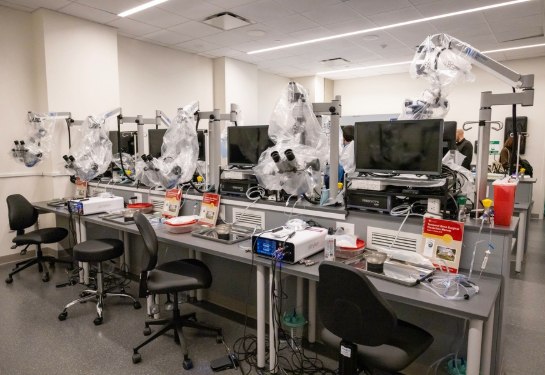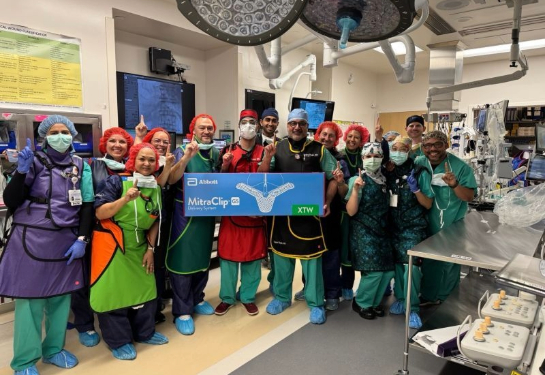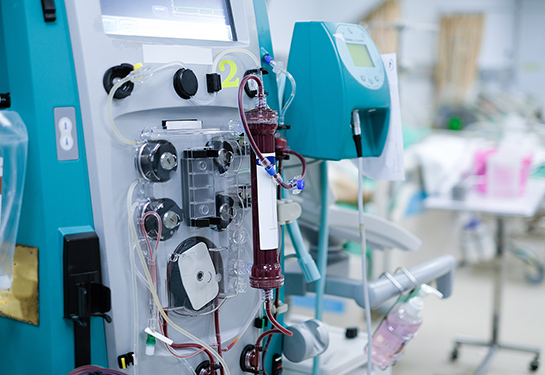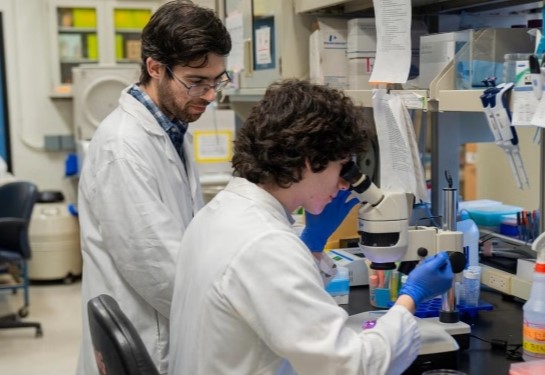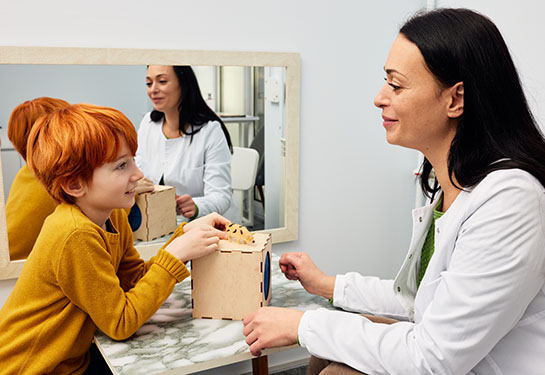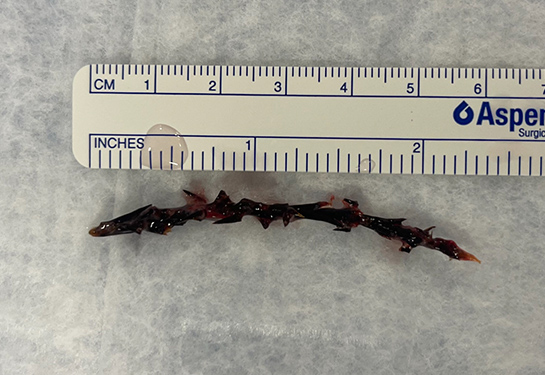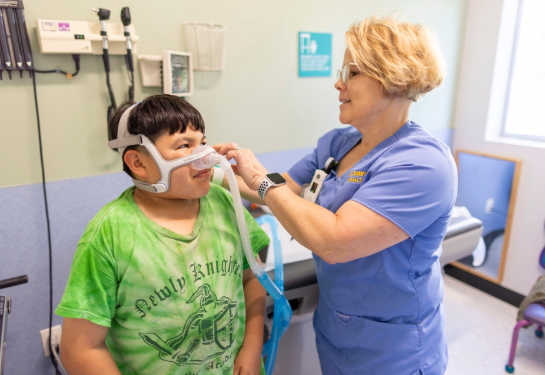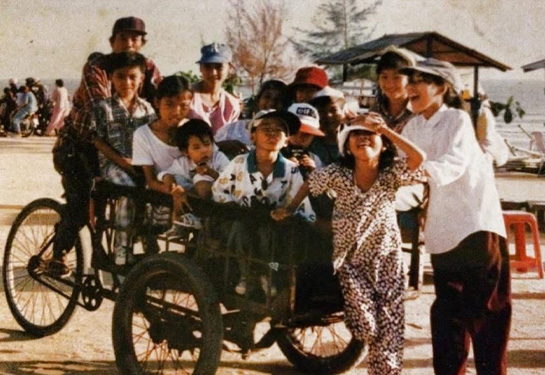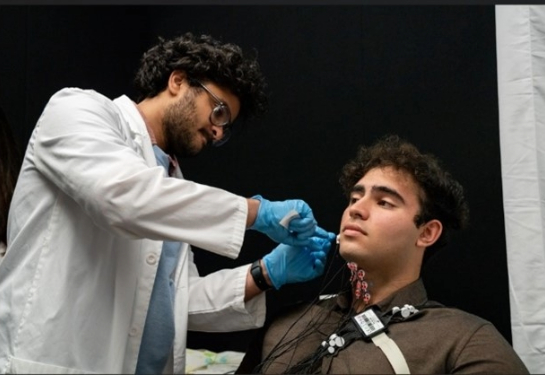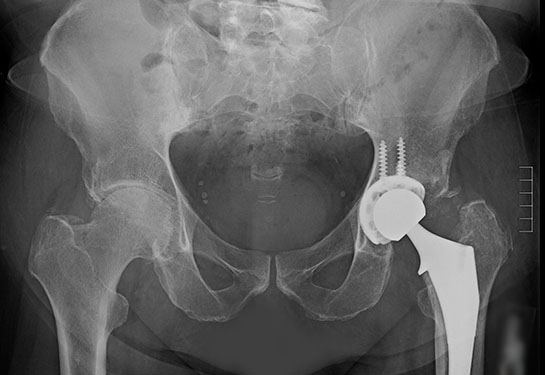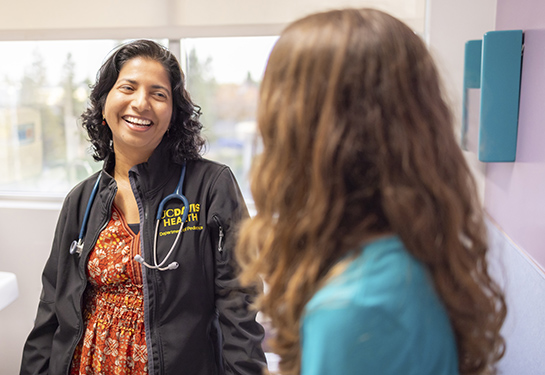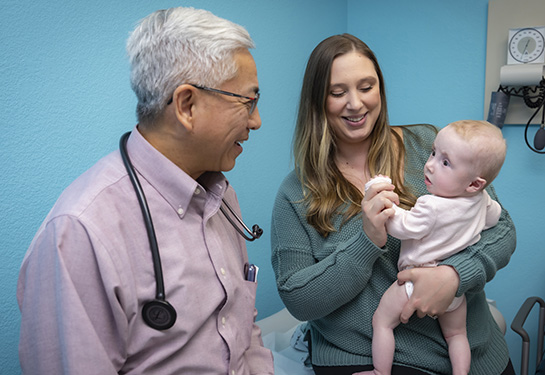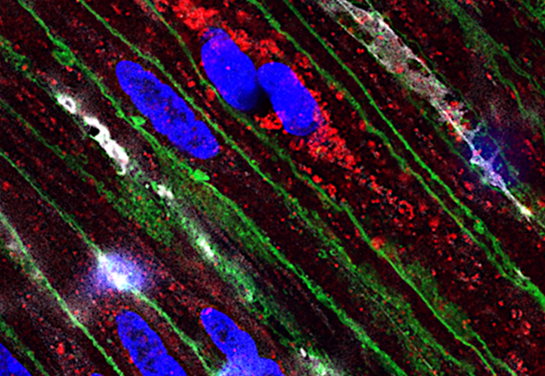-
February 11, 2026
Robotic-assisted reverse shoulder replacement gives patient back his mobility
UC Davis Health orthopaedic surgeon Mariano Menendez is one of a small group of surgeons nationwide offering the procedure, which ensures precise implant placement.
Read More
-
January 02, 2026
Innovative spinal implants relieve pain from degenerative disc disease
Procedure relieves severe neck and arm pain and numbness for emergency department nurse.
Read More
-
December 23, 2025
New trial at UC Davis Health shows promising results for rare liver disease
A new monoclonal antibody for a rare liver disease, primary sclerosing cholangitis, showed promising efficacy in a recent multicenter study led by UC Davis Health.
Read More -
December 05, 2025
UC Davis Health examines systemic impact of GLP-1–based therapies
UC Davis Health is exploring the potential of GLP-1 agonists with a new Obesity Clinic and a recent gathering of experts who research the systemic effect of the drugs.
Read More -
December 01, 2025
UC Davis Health opens new temporal bone lab
The Otolaryngology Department has opened a state-of-the-art temporal bone lab for team members to refine techniques for complex ear and skull base surgeries.
Read More -
December 01, 2025
UC Davis Health Center for Lymphatic Disease named Comprehensive Center of Excellence
UC Davis Health’s Center for Lymphatic Disease is one of only 20 centers worldwide recognized as a Comprehensive Center of Excellence by the Lymphatic Education and Research Network.
Read More
-
November 20, 2025
UC Davis Health performs world’s first transcatheter procedure with new valve repair system
UC Davis Health cardiologists became the first in the world to treat patients with mitral and tricuspid regurgitation using a novel valve repair system.
Read More
-
October 08, 2025
A lifesaving dialysis option for critically ill children
UC Davis Health pediatric nephrologists published research in the journal Indian Pediatrics that outlines how continuous renal replacement therapy can benefit critically ill children.
Read More -
October 03, 2025
Newly recognized pathway could protect diabetics from hypoglycemia
A new study by the University of California, Davis, shows how cells work together to avoid a sudden drop in blood sugar.
Read More
-
September 26, 2025
Inside UC Davis Health’s new approach to obesity care
Endocrinologist Miranda Stiewig-Rapp discussed current trends in obesity treatment, including GLP-1 agonists, potential benefits of intermittent fasting and personalized approaches to obesity care.
Read More -
September 24, 2025
Lifestyle changes boost brain health
UC Davis contributes to nationwide study showing structured interventions improve cognition in older adults.
Read More -
September 24, 2025
New series from The Lancet offers roadmap for Alzheimer’s treatment in a changing therapeutic landscape
New research from Geriatric Psychiatrist Helen C. Kales looks at strategies for integrating emerging and existing treatments for Alzheimer's disease.
Read More -
September 18, 2025
UC Davis Health study finds potential keys to reversing bone loss
A new study from rheumatology and orthopaedic researchers reveals a promising new way to treat various bone loss conditions, including age-related osteoporosis.
Read More -
September 05, 2025
Minimally invasive ablation treats osteoid osteoma in young athlete
An 8-year-old boy needed treatment for an osteoid osteoma. His family turned to UC Davis Children’s Hospital to get him back in the game.
Read More
Football injury leads to discovery of a tumor in boy’s leg | UC Davis Children's Hospital
-
August 21, 2025
New method allows researchers to study how the brain interacts with other organs in animal models
Cardiovascular researchers have developed a novel technique for preserving brain tissue in mice while simultaneously collecting living (unfixed) samples from other organs.
Read More -
August 18, 2025
Autism, ADHD or both? Research offers new insights for clinicians
New UC Davis Health research offers insights for clinicians about the connections between autism and ADHD, which commonly occur together.
Read More -
August 12, 2025
UC Davis scientists find a microbial molecule that restores gut and liver health
Researchers have discovered a natural molecule made by gut bacteria that can reverse liver damage and repair the gut lining caused by toxic exposure.
Read More
-
July 28, 2025
U.S. POINTER Study shows lifestyle program improves cognition in older adults
A new study published in JAMA finds lifestyle interventions like diet and exercise improved cognition in older adults at risk of cognitive decline.
Read More -
July 16, 2025
New cryotherapy used to retrieve foreign body in child
UC Davis Health pediatric and interventional pulmonologists successfully removed a stick from a pediatric patient’s airway, with the innovative use of cryotherapy.
Read More -
July 14, 2025
Improving outcomes, reducing COPD flare-ups: How respiratory therapists are transforming outpatient care
Krystal Craddock discusses her award-winning paper that evaluated the benefits of respiratory therapists in the COPD clinic, which has drastically improved patient outcomes.
Read More -
July 07, 2025
How war trauma affects Vietnamese Americans’ brain health
Insights from a new study on war trauma on Vietnamese Americans can shape future research on aging, trauma and brain health.
Read More -
July 01, 2025
New study: U.S. preschoolers exposed to broad range of potentially harmful chemicals
Children aged 2 to 4 years are exposed to a broad range of environmental chemicals, with a new study showing 34 potentially harmful chemicals detected in more than 90% of children.
Read More
-
June 16, 2025
Restoring voices — and identity — with neuroengineering
Researchers are adapting technology for interpreting gestures and controlling robotic limbs to restore voices to those who have lost them after head and neck cancer.
Read More -
June 13, 2025
‘It’s been a life changer’: Complex hip replacement surgery allows doctor to walk upright again
Michael McGrath’s complicated medical history caused some surgeons to turn down his request for surgery to restore his mobility. Thanks to a UC Davis Health orthopeadic surgeon, he’s back on his feet.
Read More -
June 06, 2025
Can pediatric e-consults improve access to specialty care?
In a new study, UC Davis Health researchers have shown that e-consults — in which primary care pediatricians have direct access to specialists — improve care for young patients.
Read More -
June 02, 2025
Do microRNAs hold the key to psychiatric and neurodegenerative disorders?
A new study identifies specific microRNAs in the brain that likely contribute to bipolar disorder, depression, schizophrenia, PTSD and Parkinson’s disease.
Read More
-
May 21, 2025
‘They gave our child a chance to live a normal life’
Otolaryngology surgeons utilize augmented reality goggles to perform jaw-lengthening surgery to help an infant breathe on his own.
Read More -
May 07, 2025
Addressing diarrhea in pediatric kidney transplant patients
UC Davis Health team detail how diarrhea can impact pediatric transplant patients and offer potential clinical responses.
Read More -
May 05, 2025
Infant is first in region to get innovative stent that grows with her into adulthood
Baby treated at UC Davis Health is the first in Northern California to receive a new stent designed for infants, which can expand to adult sizes.
Read More -
May 02, 2025
The surprising role of a key pressure-sensing protein in gut health
A new study, UC Davis and UCLA researchers discovered the many ways Piezo1 sensors affect gut health and motility issues.
Read More

